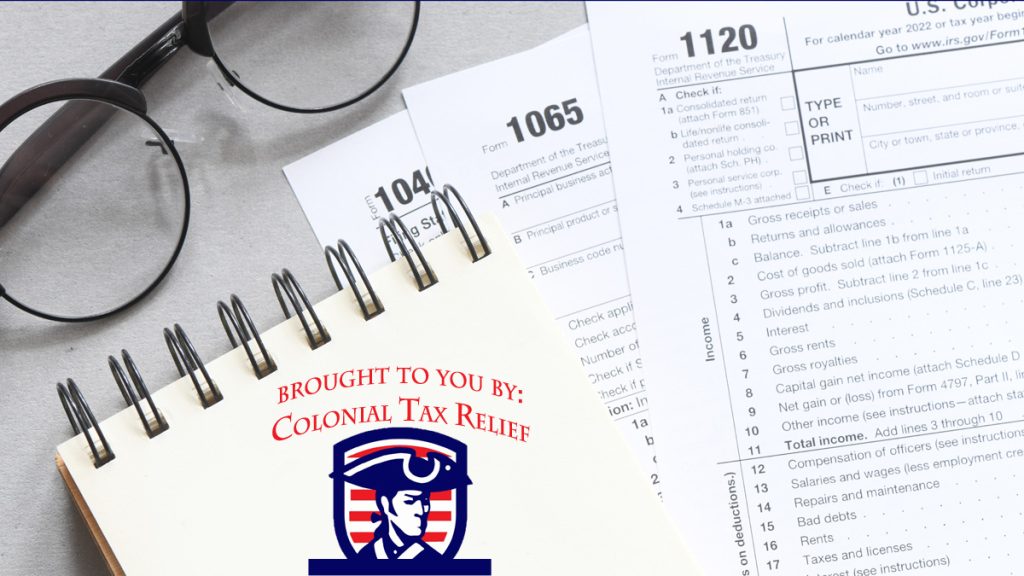Everything About The California Capital Gains Tax

Table of Contents
- Capital Gains Taxes for the State of California
- What is Capital Gains Tax?
- How Capital Gains Taxes Work
- Are Capital Gains Taxed in California?
- How Much Is Capital Gains Tax In California?
- Current California Capital Tax Gains Rate Vs Previous Years
- How The Capital Gains Tax Is Calculated In California
- California Capital Gains Tax on Real Estate
- The Difference Between Short-term Vs. Long-term Capital Gains Tax
- How To Avoid California Capital Gains Tax
- The Last Word on California Capital Gains Tax

It’s the perfect beaches, mountains, deserts, and cities that make California so desirable for more than 40 million residents and the millions more who visit the state every year.
In addition to the incredible vistas, California provides several additional benefits from great school systems, museums, roads, parks, and more, but those services also come with a bill to be paid. That said, Californians are among the highest-taxed people in the United States, paying everywhere from gas to income to capital gains tax.
Understanding the different types of capital gains tax, both federally and for the State of California, should be a priority for any individual looking to invest some money and profit from that investment.
Before you invest, know that California treats capital gains as income, regardless of how long the investment was held, and with a few exceptions, especially as these investments are related to Real Estate and retirement accounts.
Call (833) 829-2778 today for tax relief today!
Capital Gains Taxes for the State of California
California taxes capital gains as a source of income without the IRS’s differentiation between long-term or short-term gains.
The capital gains tax rate California currently plans for is one that can vary widely. Tax rates may vary as low as 1% or as high as 13%, depending on the source of the capital gains and an individual’s tax bracket.
While some individuals can see California’s lowest capital gains rate, the average for investors and other “passive” income from capital gains rates is the higher percentage of 13%.
It can be challenging to navigate the Franchise Tax Board’s tax chart, so an important consideration is consulting a tax professional to assist you with the planning and preparing your tax documents. A little expense upfront to work with a tax professional will benefit you in the final tax document and seriously consider.
What is Capital Gains Tax?
Capital gains is a tax best defined as an assessment placed on the value of an investment when an individual or organization sells that investment. Thus, the profit made from the initial purchase price to the selling price is the value taxed on the acquisition or “capital gains.”
What is not taxed are investments that appreciate over time without being sold off. These are referred to as “unrealized capital gains” and are treated as untaxed until they are sold.
When an investment is held for less than a year, it is known as short-term capital gains, while investments held longer than a year are defined as “long-term” capital gains.
Various financial vehicles generate capital gains, from purchasing and selling Real Estate to buying and selling stocks or bonds to crowdfunding investment opportunities. Understanding the capital gains tax code for both the Federal and State of California is essential in choosing the best investment vehicle for you.
How Capital Gains Taxes Work
In California, capital gains tax works as income, regardless of whether the asset is held for less than a year or longer.
Capital gains are generated when an individual or organization purchases an investment with the intent to sell it at a later date. At the time of the sale of the asset, any profits made are defined as capital gains.
There are two types of capital gains, short-term and long-term, with each having different tax liabilities and benefits.
Short-term capital gains are defined as those assets that are purchased and sold within less than a year versus being held longer, which are identified as long-term capital gains or profits made over a more extended period of time.
To understand the differences, short term capital gains tax in California is taxed at a higher rate than California’s long term capital gains tax rates, where holding an investment for a more extended period of time is encouraged.
Because the tax code favors holding onto an investment for a longer duration of time, that may help explain the question of why are home prices so high in California?
The longer a person holds a real estate investment, the more the taxes are deferred on the appreciation of the property, making real estate an attractive, long-term investment, especially as a rental property for income.
It’s important to remember that capital gains tax rates in California are treated as gross income, while federal rates are taxed based on tax brackets which we have provided further down in this article.
Are Capital Gains Taxed in California?
The short answer to whether capital gains are taxed in California is yes.
This is because the tax rate including income and capital gains are higher than most other states and is one of the ways that California generates a bunch of its annual revenue.
California treats capital gains as an income regardless of how long the asset was held. In contrast, federal capital gains tax will consider capital made from short-term and long-term investments differently.
This means that the average investor holding an investment may be a more financially sound strategy than buy-and-sell investments such as stocks or flipping homes.
A more prudent approach then is to buy and hold, whether it’s an investment vehicle such as a stock or Real Estate, rather than looking for a quick source of income in order to benefit from various exclusions available.
Call (833) 829-2778 today for tax relief today!
How Much Is Capital Gains Tax In California?
Regardless of the year, the California capital gains tax rate of 2022 is based on the type of asset that made profitable gains that need to be assessed.
If it was a short-term holding such as a stock or a real estate “flip,” you may be taxed as high as 15% on the profits of the sale.
In contrast, a long-term holding real estate property may be taxed even higher, but the higher rate in the State of California will be offset by lower rates with the Federal Tax Code.
What this means is that for the investor, depending on the asset, the tax code encourages long-term capital gains with various deductions, exclusions, and how the tax rate is calculated, such as income for California or based on income tax brackets for federal taxes.
Current California Capital Tax Gains Rate Vs Previous Years
Unlike federal capital gains taxes, California’s capital gains tax rate for 2022 is not based on whether the gain is short-term or long-term. Stocks, bonds, mutual funds, and real estate are among the assets that are subject to this California capital gains tax rate. Tax rates (1% – 13.3%) on capital gains are in keeping with general income tax laws in California.
Because California collects tax on capital gains as regular income, tax rates do not change much. In reality, how much taxes you pay has changed over the years since the criterion that determines how much you pay has changed. For instance, both in 2018 and 2022, long-term capital gains of $100,000 were taxed at 9.3%, but the total income for this tax rate maxed out at $268,749 in 2018 and increased to $312,686 in 2022.
To give you a clearer idea of the current capital tax gains rates versus last year, check out these tax rate charts from 2021 and 2022.
2021 Capital Gains Tax Rates
| Tax Bracket/Rate | Single | Married Filing Jointly | Married Filing Separately | Head of Household |
| 0% | $0 – $40,400 | $0 – $80,800 | $0 – $40,400 | $0 – $54,100 |
| 15% | $40,401 – $445,850 | $80,801 – $501,600 | $40,401 – $250,800 | $54,101 – $473,750 |
| 20% | $445,851+ | $501,601+ | $250,800+ | $473,751+ |
Income thresholds for the capital gains tax rates are adjusted each year for inflation. To learn how the thresholds have adjusted from 2021 to 2022, here are the figures and tax brackets/rates for the 2022 tax year:
2022 Capital Gains Tax Rates
| Tax Bracket/Rate | Single | Married Filing Jointly | Married Filing Separately | Head of Household |
| 0% | $0 – $41,675 | $0 – $83,350 | $0 – $41,675 | $0 – $55,800 |
| 15% | $41,675 – $459,750 | $83,350 – $517,200 | $41,675 – $258,600 | $55,800 – $488,500 |
| 20% | $459,750+ | $517,200+ | $258,600+ | $$488,500+ |
How The Capital Gains Tax Is Calculated In California
In general, to determine your capital gains tax in California, you can use a simple formula that helps you calculate your gross tax rate.
To determine your taxes related to capital gains, use this simple formula:
- Note selling price
- Deduct selling expenses
- Determine purchase price
- Determine your basis: deduct #3 from #2
- Calculate deductible depreciation
- Deduct depreciation from basis = gains
- Multiply your gains by the State tax rate
California Capital Gains Tax on Real Estate
One distinction in the California tax code is that there is a built-in exclusion for Real Estate owners that hold the property as a primary residence.
The criteria that the owner needs to adhere to is that they may only possess one home dedicated as a primary residence, the owners live on the property for 2-years in a 5-year window, and the sale of the home nets less than $250,000.
Even with this exclusion, any property sold that nets more than $250,000 will be taxed for every dollar above the threshold.
According to the Franchise Tax Board of California, the California capital gains tax rate in 2022 allows for that exclusion if an owner meets the following criteria:
- Reside in the property for 2-years within 5-years of selling
- Properties are defined as any of the following:
- House
- Houseboat
- Condominium
- Mobile Home
- Trailer
- Coop Apartment
- May only have one (1) home dedicated as the primary residence
- Have not claimed the exclusion in the past 2-years
- The profits must net less than $250,000
The Difference Between Short-term Vs. Long-term Capital Gains Tax
The main difference in discussing short-term and long-term capital gains is the amount of time that the individual held the asset before positioning the investment for sale.
The shorter an investment is held, the more significant the tax burden, creating short-term capital gains to be recorded as income for the year the sale occurred.
While long-term capital gains are taxed at a higher rate, the proceeds from any capital gains will allow for different deductions and exclusions as a reward for holding the investment over a longer duration of time.
In essence, unless you are successful at day-trading or flipping homes, the tax code encourages investments to be held longer, offering plenty of incentives in the tax code to hold onto any investment.
While there are some minor differences, the California capital gains tax rate in 2021 doesn’t offer much difference from the 2022 structure.
The main difference in the tax code is between the federal tax code and the state that will emphasize higher income brackets to pay at a higher percentage rate. Still, for the average Californian with a household income less than $180,000, the rates are more manageable.
Call (833) 829-2778 today for tax relief today!
How To Avoid California Capital Gains Tax
If you want to lower the tax bill on the sale of your home, there are ways to reduce what you owe or avoid paying the full amount of capital gains taxes on your property. For instance, you can take advantage of the capital gains real estate tax exemption.
This exemption can save single taxpayers up to $250,000 or married filing jointly taxpayers $500,000 per tax year. To qualify for this exemption and reduce your tax bill, the name of the taxpayer who owns the property must have lived in the home for at least two years within the last five years the property was owned before selling it.
Even if you don’t qualify for the aforementioned exemption, you may still be eligible for a partial exemption. If you were unable to live in the home for two years due to situations such as: A doctor-recommend health condition, a sudden need to move because of employment, or a death in the family – these are a few examples that qualify for a partial exemption.
You can also make adjustments to the cost basis of the property to avoid hefty capital gains taxes. For instance, property owners can increase the cost basis by including expenses associated with the property purchase, such as fees, additions, and home improvements. Consequently, the increase in cost basis offsets and reduces the capital gains.
The Last Word on California Capital Gains Tax
In conclusion, California taxes any capital gains as an income source at a higher rate than almost any other state in the United States. In fact, just over 11% of the total revenue incurred by the State of California is generated by capital gains, providing citizens and tourists alike with various public services paid for from those capital gains.
Moreover, while California assesses capital gains as income, there are a few exceptions granted: when individuals sell off their primary residence and make less than $250,000 profit on the transaction, the exemption offered makes homeownership an attractive investment vehicle for Californians. While capital gains taxes are an inconvenience to pay, they do serve a purpose. If you do wind up paying a hefty amount, perhaps it might ease your mind knowing that your capital gains taxes go towards essential state and city services such as public health services, emergency services, government and law enforcement salaries, and more.
Please fill out this form for a free consultation from a Colonial Tax Relief representative.

About the author: David Throop is a freelance writer specializing in marketing, health, fitness, and wellness with an eye toward his clients achieving their outcome objectives. When he is not being bitten on the ankles by precocious puppies and children he likes to spend his time outdoors. Additional reporting by LaJolla.com staff.
The banner photo for this photo is of the California State Capitol (not to be confused with capital gains!), and is courtesy of @castatecapitol on Instagram.




